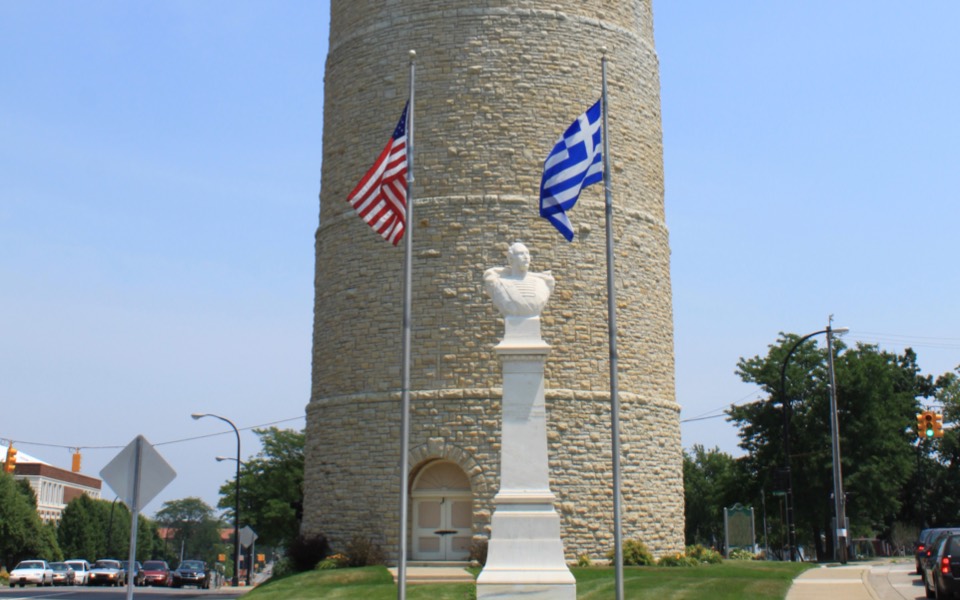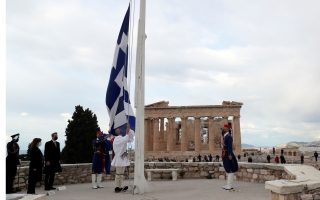What’s in a name? Maybe inspiration from 1821

It was with interest that I read US Ambassador Geoffrey Pyatt’s column in Kathimerini on January 18 on the 200-year anniversary of our War of Independence and the bonds between the US and Greece. The ambassador is right, the founding fathers of America knew ancient Greek history and could read the Greek classics in the original. They admired Athens’ vibrant intellectual culture and Sparta’s austere character. They tried to create a state that would combine the best of the Greek political system without its weaknesses. The US admiration for ancient Greece is evident even in American public architecture, with government buildings looking like ancient Greek temples, complete with columns. One of the most important of the founders, Thomas Jefferson, was even acquainted and corresponded with one of modern Greece’s founding fathers, Adamantios Korais. The American love affair with Greece persisted among the educated elites; during the Greek War of Independence (the commemoration of which prompted Ambassador Pyatt’s column), a number of American philhellenes came and fought in Greece. Back in the US money was collected to aid the Greek cause, and a few orphans were adopted by American families.
The ambassador’s column prompted me to ask whether ancient Greece was important only to the sophisticated elite of the East Coast or if there was greater sympathy among the less sophisticated Americans of the heartland. This is a difficult question to answer; one way of trying to find the degree of American affinity for Greece is by looking at US cities with Greek names. So, I decided to do some very simple, unscientific research. I ignored names based on the Greek language such as Phoenix or composite names such as Minneapolis. Instead, I Googled the phrase “How many US cities are named…” and I used Athens, Sparta and Marathon.
I found that there are about 16 places named Athens, 19 Spartas, and eight Marathons (I am sure there are more). They are to be found all over the USA, from as far north as Minnesota to as far south as Alabama; from as far east as New York to as far west as Kansas. Some are tiny towns with less than 1,000 inhabitants, while Athens, Georgia has a population of about 130,000 and is the home of the University of Georgia, which opened its doors in 1785!
I don’t know the story behind every city in America named after a Greek one. Clearly some educated individuals with influence among the early settlers proposed a name that they thought would make their new town sound good. Still, most of the early settlers had to somehow agree to the name. Usually none of them were Greeks and yet the new towns’ leading citizens, but also common people like farmers and shopkeepers living in the American frontier and away from the sophisticated elites of the East Coast, as Ohio and Georgia were at the time, agreed to the name.
My favorite story though is about a small settlement in Michigan. Founded in 1825, the city fathers were looking for a good name for their growing settlement. The Greek War of Independence was in the news and that inspired the people to name their city after a Greek revolutionary hero. To this day, next to the city’s water tower, there is a small monument: the Greek and US flags and, between them, the bust of Demetrios Ypsilantis, after whom Ypsilanti, MI is named.
John A. Mazis is a history professor at Hamline University in Saint Paul, Minnesota. He is the author of the book “A Man For All Seasons: The Uncompromising Life of Ion Dragoumis.”





